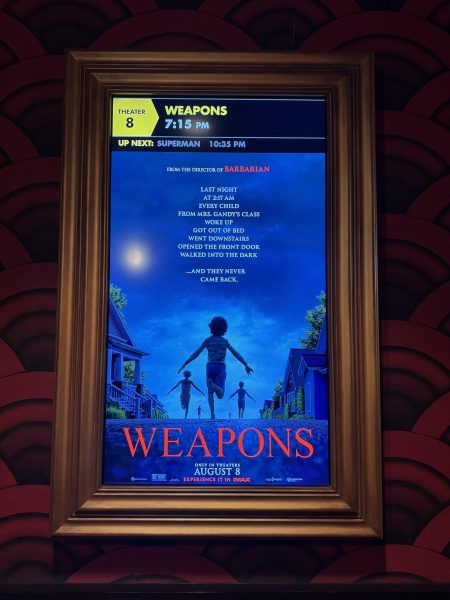IMDB
The public cry for more representation has rung out into the media, which, like one of the great Gods of old, has answered.
Kinda.
IMDB has chosen to add to their classification system the “F rating,” a tag created three years ago by Executive Director of the Bath Film Festival, Holly Tarquini, with the intention of highlighting films in which women have had a significant hand in producing.
According to the Website created by the Bath Film Festival, in order for a film to qualify for this rating it must be directed by a woman, be written by a woman, or “[feature] significant women on screen in their own right.”
The necessity of this system is to, of course, address issues of inequality, more specifically the disparity in gender within the filmmaking industry. As reported on their site, women made up only 3.6% of directors, 4.4% of writers and 10.4% of producers of 2015’s top 250 films.
Now some may look at this and say, “Well yeah, these are the top films, women are there, they just aren’t making good enough pieces,” but I’m not Ayn Rand, so I highly doubt that’s the case. In reality, this disparity is due to a lack of opportunities allotted to women within the entertainment industry due to the same sexism that bars women in other artistic endeavors, including but not limited to the fashion or culinary industries. “It’s cute when she does it as a hobby, but let’s be serious boys, that’s all it’ll ever be,” etc. etc..
In other words, I’m all here to call out systems of inequality for what they’re are, especially given a political environment that is keen on placing a veil over these systems and pretending they aren’t there like in the good ol’ days when America was great or something.
However, I do have qualms with the system as well. For one, while it may highlight disparity, it does nothing ultimately to strike at its source. It diagnoses the disease and leaves you with the bill. Perhaps this is an unfair criticism, but a weed must be pulled out by the root; we cannot simply acknowledge a problem and then pretend it will fix itself.
Yet acknowledging the problem is still a step in the right direction, and more than can be said as to other issues of diversity within Hollywood. This is clear from the recent release “Ghost in the Shell,” Hollywood still likes to pretend POC don’t exist while benefiting from their aestheticism or creative contributions, which is something that both IMDB and Tarquini’s team has failed to address. The latter especially has vague undertones of white feminism, as their team, despite fighting for equality, evidently has failed to include a woman of color.
All this is to say, while I’m pleased that attention is being called to unfair treatment of marginalized groups, we must do this for all marginalized groups, not only for the ones that are convenient for us. We must continue to act without expecting the problem to simply solve itself. But in the meantime, it never hurts to take a Netflix break.






